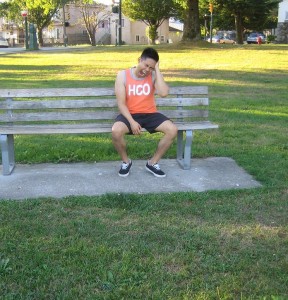A stiff neck is a symptom of certain conditions affecting any structures in the neck. The neck is comprised of seven cervical vertebrae which are called the building blocks of the spine and neck. Inside the neck are organs and other structures like the neck muscles, veins and arteries as well as the lymph glands, parathyroid glands, thyroid glands, esophagus, trachea and larynx. Stiff neck is a symptom of meningitis along with fever and headaches. Stiffness of the neck can also develop as reaction and result of muscle spasm and other conditions that causes neck pain, like traumatic injuries.
Neck pain may feel like a “kink” or severe pain and spreads to the shoulders, upper back and arms or it can cause a headache.
Causes of neck pain or stiffness caused by muscle spasm or strain
- Sleeping on a pillow that is high and flat and does not support the head or sleeping on his/her stomach with neck bent or twisted.
- Holding the head in a forward posture while working, watching television or reading.
- Tension makes the muscles that are found in the back of the head across the back of the shoulder feel tight and painful.
- Spending time resting the forehead on the upright fist or arm like a “thinker’s pose”.

Neck pain caused by minor injuries
- Tripping, excessive twisting of the spine and falling a short distance.
- Severe neck injuries can be caused from whiplash in a car accident, falling from a significant height, sports related injuries, a direct blow on top or at the back of the head, and a penetrating injury like a stab wound or pressure applied to the neck as in strangulation.
Pain in the neck caused by acute injuries
- The ligaments or muscles found in neck are injured caused by sprain or strain.
- A fracture or dislocation of the spine can cause a spinal injury that result to a permanent paralysis.
- A torn and ruptured disc where the jellylike material found inside the disc may leak out or herniate and presses against the nerve or the spinal cord also known as central disc herniation. The individual will experience headaches, feeling dizzy or sick and have pain in the shoulders or on the arms.
Treatment and home remedies
- Apply ice and cold compress on the affected areas for 15-20 minutes at 3-4 times a day or even up to one hour for the first 24-48 hours. Cold compress minimizes the swelling and pain. Put a towel between the skin in order to prevent frostbite from developing.
- Massage the painful area with ice for 2-7 minutes in order to numb the pain. If you want to learn more about treatment measures to perform, click here.
- Gently massage or rub the area in order to relieve pains and encourage circulation, do not massage the area if it causes pains.
- Apply warm compress if there is no swelling.
- Continue with the daily activities, but avoid activities that can worsen the pain, practice good posture and avoid slouching or a head-forward posture.
- Avoid smoking
